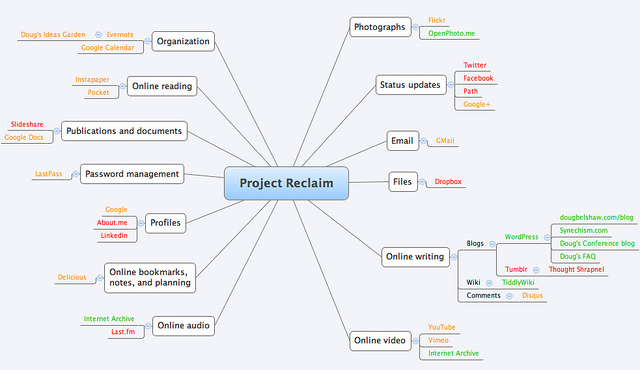My sites are now hosted in the European Union
I host my websites through Reclaim Hosting. I’ve been with them for a few years now, ever since they were known as ‘Hippie Hosting’ and an offshoot of the amazing work done by Jim Groom and team at the University of Mary Washington’s Division of Teaching and Learning Technologies.
Companies often talk about their commitment to customer service, but I’ve never known anything like that which receive from Reclaim Hosting. It’s insane. For example, in the last six months, amongst other things, they’ve:
- Responded within a minute to a query about my wiki being down, and had fixed it for me within five minutes.
- Worked with me to rectify a persistent spamming problem on my sites (that was my fault, not there’s)
- Migrated my sites from US servers to ones based in the EU within 24 hours of me tweeting that I’d like them to do so.
On top of that, they charge me a very low price. I’m a huge fan, as you can tell.
The last of the bullet points is an important one as President Trump continues to rip up the good work carried out by his predecessors. For example, earlier this month, The Register reported on a joint letter sent by Human Rights watch and the ACLU which outlines in detail how Trump’s executive orders are underming the US-EU Privacy Shield. Bloomberg reckons that the EU are ready to pull out of it.
It’s 2017, so it seems strange to be talking about things that seemed more important in the early days of the web, such as where your server is located. But, of course, given the nationalist turn we’ve taken in the west, these things matter.
They matter because he location of your server is still of vital importance, despite recent protestations, that data in transit through the US makes it subject to US law. What you put on your own web space isn’t just the front end stuff that everyone sees, it’s the backend stuff as well — family photos, private emails, and the like.
Some people have asked why I’ve chosen to host my data in Germany, rather than in the UK. Well, for a start, I still consider myself as more European than British, despite ‘Brexit’. Second, Germany has stronger privacy laws than the UK (and certainly the US). Finally, and more pragmatically, it’s the EU option offered by Reclaim Hosting (mainly, I believe, because Digital Ocean offer block storage in that zone)
I perhaps spend more time thinking about these things than most, but that’s because it’s something I deem important. Ironically, most of my readers are in the US, so this move actually adds a few milliseconds to their page load times. Sorry about that…
Image CC BY Jeff Ddevjet



